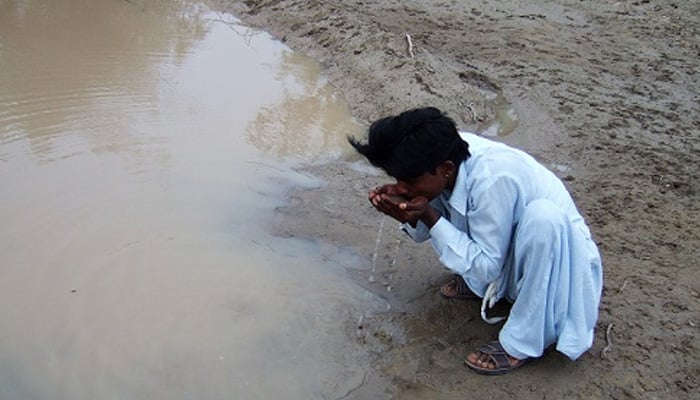
Water conservation: from schools to Okara farmsAn elderly man leans against the brick walls of a primary school in Bhatti Dhilwan Village near Sheikhupura with his arms folded above his elbows.
He lowers his gaze, as if to concentrate on something crawling on the cement floor.There was no clean drinking water, he says with his head hung low.
The only water that was available was making our children fall ill, he added.He suddenly looks up and points at something in the distance: the newly-constructed room that serves as a water filtration plant and contains huge cylinders to filter water.This plant, however, has decreased our hardships, he says with a twinkle in his eyes.Under the banner of its Creating Shared Value (CSV) initiatives, Nestl Pakistan has embarked on a journey to contribute towards alleviating the suffering of the underprivileged.Last year, a shocking report revealed that the available groundwater was laced with arsenic.
The area also lacked a filtration plant that could make water fit for human consumption.Residents continued to suffer until personnel at Sheikhupura water factory decided to use their expertise to tackle the problem to the best of their abilities.
Soon enough, the installation of the filtration plant was completed and villagers from not only Bhatti Dhilwan but also other nearby hamlets flocked to the facility to fetch clean drinking water.The now-refurbished building of Government Primary Boys School stood as a beacon of hope amid the humble surroundings of the village.
The schools premise has a water filtration plant that provides more than 10,000 litres of water.
Four steel taps, which were installed on the marbled wall, would remain open between 7am and 10am in the morning, and 4pm and 6pm in the evening.
This allows villagers to fill as many water cans as they want to.Cow waterThis and several other initiatives are being taken by the company to ensure water conservation in an increasingly water-stressed Pakistan.
The factory, which is the first to be awarded AWS certification, is using various techniques to minimise the amount of water that is being waste to the maximum.As of now, for every 1.4 tonnes of water that is being processed, one tonne of drinkable water is produced, says Muaaz Bin Aqeel, a representative of Nestl Pakistan.
The company is working to bring the input-output ratio to one.According to Muaaz, it has implemented out-of-the-box strategies to ensure maximum water conservation.It has recently introduced the incredible idea of cow water, Muaaz explains.
The effluent that is left behind, and is normally treated as waste, after the treatment of dairy products is now being processed to be used for other non-food productions.Sowing crops - one drop at a timeSituated three kilometres from Sheikhupura, Okara is famous for its agricultural land -- another location where the company is using different strategy to reduce water wastage.
Allah Bakhsh, an agricultural adviser in Okara, says that sustainable initiatives has been taken to uplift the agricultural sector.He explains that instead of relying on international markets for basic raw materials, including chilli and maize, the company is empowering local farmers to produce high-quality crops.This output is bought by the company at market rates.
What is even more fascinating about this setup, helping local farmers adapt to modern irrigation techniques, including drip irrigation system, he addsAccording to the agricultural adviser, around 60 percent of the cost associated with this method is borne by the Punjab government while the remaining amount is being paid by Nestl.In this way, farmers who want to transition from traditional method of farming can easily do so without facing any monetary burden, Bakhsh adds.He said that across the country the traditional method of irrigation is flood irrigation.Through this technique, crops are drowned under knee-length water, Bakhsh explains.
This method doesnt only lead to the excessive waste of water, but also tampers with the quality of the crop -- in some cases, making them toxic and unfit for consumption.In one of the farms in Okara, soil moisture sensors to prevent farmers from under or over irrigation has been installed in collaboration with the Lahore University of Management Sciences (LUMS).These sensors measure the water level of soil and send data to the cloud from where farmers are informed about the area which they need to irrigate.
This watersense technology helps reduce water wastage.Farms that use traditional methods of irrigation often use thousands of litres of water to get only a kilogramme or maybe less of a certain crop.
The steps will help break this habit of mindless wastage.It is just the beginning, Allah Bakhsh says.
We are setting the example for other farmers.
We are hoping that they would follow in our footsteps to ensure maximum water conservation.

 15
15







